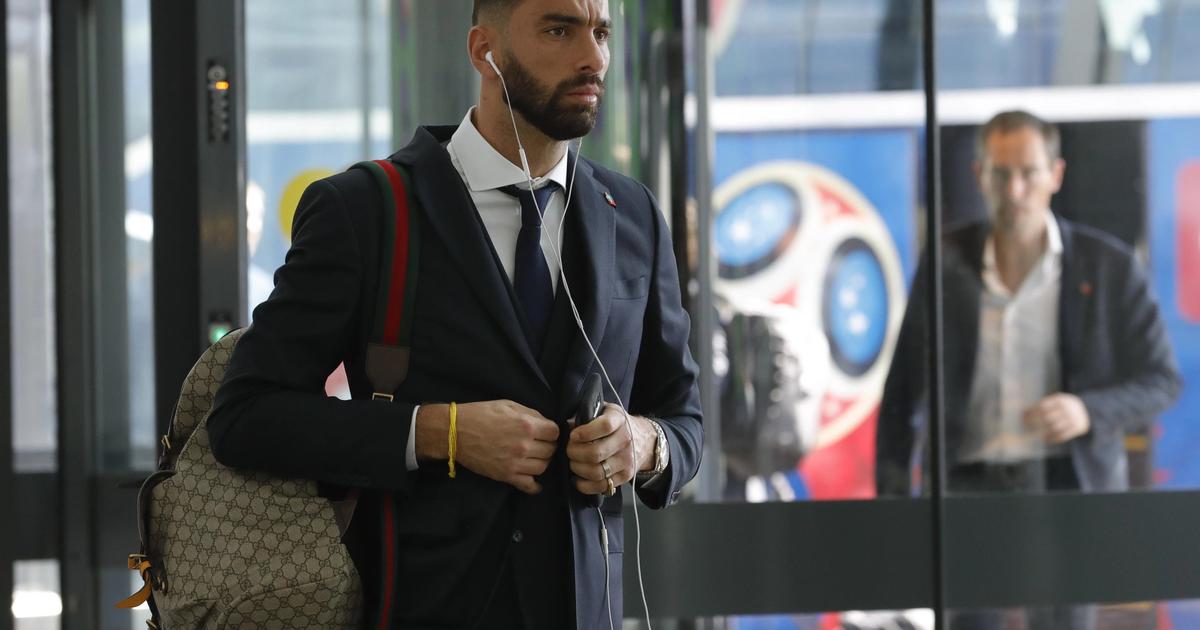REUTERS/Tatyana Makeyeva
Rui Patricio, Jean Michael Seri, Felipe Anderson.
At the end of last season, all three players could easily be envisioned at one of Europe’s elite clubs, though all now are signed up to play for either a club that finished outside of the Premier League’s top ten or just earned promotion.
With Colombia midfielder Jefferson Lerma being repeatedly linked to Bournemouth along with Uruguay defender Diego Laxalt, Everton rumoured to be closing in on a deal for Malcolm - a player himself heavily linked with Arsenal, Tottenham and Manchester United only six months ago - and Yerry Mina often finding his name in the headlines, there seems plenty more big deals could be made outside of the Premier League’s top six.
But is this an indication of increased ambition from the league’s clubs, decreased ambition on the part of high-profile players or something else entirely?
The art of the deal
Amongst all the high-profile players pouring into the Premier League for next season, Brighton are staking a reputation as the kings of shrewdness. The signing of Yves Bissouma from Lille and Bernardo Silva from RB Leipzig are the pick of their six signings so far this summer.
Like the criminally under-rated Jose Izquierdo and Davy Propper who joined last season, each player cost less than £15m. Indeed, Pascal Gross was signed by Chris Hughton for a mere £3m fee.
But while it’s every chairman’s dream to unearth and pluck up these players, sometimes parting with significant amounts of money is unavoidable in securing their targets.
More money than sense?
Rewind the calendar 12 months and Merseyside was awash with excitement and anticipation.
Everton concluded their summer transfers with the £10m signature of promising 19-year-old Nikola Vlasic. This pushed their outlay through the £150m barrier, making them the Premier League’s fourth-highest spenders last summer.
Most people were in agreement that it was money well spent. In the likes of Gylfi Sigurdsson (£44m), Michael Keane (£30m), Davy Klaassen (£24m) and Wayne Rooney (free) they had high-profile players capable of improving upon their seventh-placed finish.
As you may have heard, things didn’t quite work out that way though.
History repeating itself
This season, West Ham are hoping improvements can be bought. With over £90m already blown, seven new faces on the wage bill and a promise from David Sullivan of more to follow, only time will tell if they’ve spent wisely.
So far this window, only Liverpool have made a greater outlay than the Hammers. Whether this speaks loudest of ambition or foolishness probably depends on your opinion of whether “value” has been achieved with these deals.
Felipe Anderson for £35m – an exciting winger set to enter the peak years of his career or a 25-year-old who stumbled in his progression last year and represents a huge gamble? And do these seven signings really address the major problem in East London, the defensive deficiencies which saw them concede the joint-highest number of goals last season?
New challenges
West Ham are far from the only club striving for betterment. In the case of the three newly promoted sides, they arguably have the biggest jump to make in terms of squad quality.
Cardiff have spent a modest £27m across their four signings with “one or two more” still expected by Neil Warnock over the coming three weeks. But while the Bluebirds have been recruiting from the lower leagues of English football, their rivals have been showing more adventure with their dealings.
REUTERS/Jorge Silva
Jean Michael Seri, Maxime Le Marchand and, most probably, Aleksandar Mitrovic will be joining Fulham’s ranks for a total somewhere near £50m.
Wolves, too, have spent a similar amount, £40m plus an as-yet-to-be confirmed amount for Rui Patricio, which is likely to be anywhere between free and £48.5m. These spends are relatively in-keeping with the amounts invested by Brighton (£43m) and Huddersfield (£48m) last summer.
The bright lights of England
What has changed is the perceived calibre of player being attracted to the Premier League’s newcomers.
I chose the club because they showed a big interest in me and my goal has always been to play in the Premier League because it's the biggest league in the world - Bernardo on his move to Brighton
The above quote highlights the regard that many foreign plays hold for the Premier League. The league firmly established itself around the world as the self-proclaimed “best league” in the two seasons between 1994-96, reinforced throughout the 2000s and something that today’s young footballers were exposed to as they grew up dreaming of turning professional.
A clean slate
Bernardo may not have the reputation of Diego Laxalt, but few fans of West Ham, Bournemouth or any other club he’s been linked with, would have been as excited about Laxalt’s signature before this summer’s World Cup.
While players like Anderson have built up their reputation over a longer period of time, buying high-profile players was not a fruitful policy for Stoke City. West Ham found last season that Joao Mario failed to live up to his price tag, a £35m signing for Inter Milan in 2016.
Regarding how new signings will adapt during the coming season, one thing is for sure. When the Premier League does restart in three weeks time, reputations will count for little.
If you want to read more football content, make sure you follow us on Twitter @realsportgoals
[zombify_post]
Explore new topics and discover content that's right for you!
News



